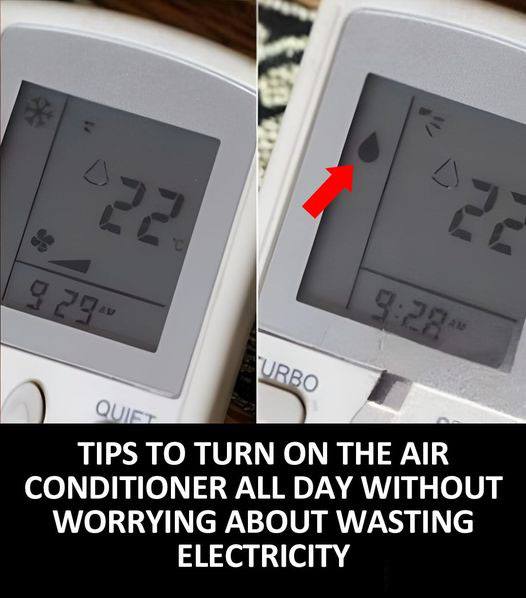As summer approaches and temperatures climb higher, air conditioners become a lifeline for many households. However, this comfort often comes with a hefty price tag in the form of increased electricity bills. Fortunately, there are several practical and effective strategies to keep your air conditioner running efficiently while saving energy and reducing costs. These tips will not only help protect your wallet but also minimize the environmental impact caused by excessive energy consumption.

Air conditioners play an essential role in keeping us comfortable during intense summer heatwaves, protecting us from potential health risks like heatstroke and dehydration. However, these systems are also significant contributors to global warming due to high energy consumption and refrigerant emissions. Scientists warn that temperatures are expected to rise steadily in the coming years, making it even more crucial to find a balance between personal comfort and environmental responsibility. Here are 12 smart ways to optimize your air conditioner’s performance without breaking the bank.
1. Regularly Clean and Unclog the Air Conditioner
One of the easiest yet most overlooked ways to improve air conditioner efficiency is to clean the system regularly. Dust, debris, and dirt can build up in vents and filters, restricting airflow and forcing the system to work harder. Whether you clean it yourself or hire a professional, keeping the airways clear ensures smooth operation, saves energy, and extends the lifespan of the unit.
2. Schedule Professional Maintenance
Even if you’re diligent about cleaning your air conditioner, scheduling regular professional inspections is essential. Technicians can identify hidden problems, such as poor airflow, faulty wiring, or refrigerant leaks, that may not be immediately visible. Routine maintenance prevents costly breakdowns and keeps your AC running efficiently throughout the summer.
3. Maintain a Consistent Temperature
Constantly adjusting your thermostat can cause unnecessary strain on your air conditioner. Instead, aim to maintain a consistent temperature throughout the day. Keeping your thermostat stable helps reduce energy spikes and prevents the system from overworking during the hottest hours.
4. Set Your Thermostat Higher
While it’s tempting to turn the thermostat down to 65°F on a hot day, this practice drives up energy costs. Experts recommend setting your thermostat to around 70°F to 72°F. Each degree closer to the outdoor temperature can save significant energy—sometimes up to 20%.
5. Give Your AC a Break at Night
During cooler summer nights, turn off your air conditioner and let fresh air in through open windows. If it’s too hot to turn off the AC completely, consider raising the temperature slightly while you sleep. Additionally, if you’re away from home during the day, avoid running the AC at full capacity when no one’s around.
6. Be Mindful of Peak Hours
Afternoons and early evenings are often the hottest times of the day, which means air conditioners must work harder to keep homes cool. If possible, plan outdoor activities during these peak hours—visit a local lake, river, or community pool to cool off naturally. This strategy reduces reliance on your AC during its most energy-intensive hours.
7. Close Windows During the Day
While open windows might provide relief at night, leaving them open during the day invites heat into your home. Make it a habit to close windows early in the morning to trap cool air inside and prevent the sun’s heat from entering.
8. Keep Blinds and Curtains Closed
Direct sunlight streaming through windows can quickly heat up a room and force your air conditioner to work overtime. Use blinds, curtains, or reflective window covers to block out sunlight, especially on south- and west-facing windows.
9. Use Ceiling Fans to Circulate Air
Ceiling fans are an excellent complement to your air conditioner. They help circulate cool air evenly throughout the room, reducing the need to lower your thermostat. Just make sure your fan is spinning counterclockwise in the summer to push cool air downward.
10. Cook Strategically
Cooking generates a surprising amount of heat, which can make your AC work harder. Try to prepare meals using smaller appliances like microwaves, air fryers, or slow cookers instead of the oven. If possible, cook early in the day when temperatures are cooler, or opt for no-cook meals like salads and charcuterie boards.
11. Insulate and Seal Gaps
Proper insulation is key to preventing cool air from escaping and warm air from seeping in. Check for cracks around windows, doors, and ducts, and seal them with weatherstripping or caulk. Homes with attics, basements, or sunrooms often have hidden leaks, so pay special attention to these areas.
12. Upgrade to a Smart Thermostat
A smart thermostat may have a higher upfront cost, but it’s a long-term investment that pays off. These devices allow you to program temperature settings based on your schedule, ensuring the air conditioner runs only when needed. Features like remote control through mobile apps and energy usage reports make smart thermostats an excellent tool for reducing unnecessary energy consumption.
In conclusion, maintaining an energy-efficient air conditioner doesn’t require drastic changes—just a bit of awareness and consistency. By adopting these strategies, you’ll not only enjoy a cooler home during the summer months but also reduce your carbon footprint and save money on utility bills. Whether it’s a simple task like cleaning filters or a bigger investment in a smart thermostat, every step counts.
As temperatures continue to rise globally, balancing comfort and sustainability becomes more critical than ever. With a little effort and smart planning, you can keep your home cool, your bills manageable, and your environmental impact minimal. Now’s the perfect time to start preparing—before the summer heat hits its peak!





